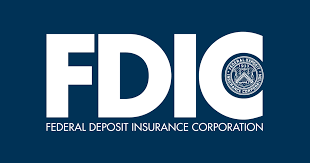Client Question: FDIC Insurance
March 16, 2023
Given the events of the past week, it’s natural that people are reevaluating their own cash management strategies. Chief among the questions I heard from clients this week is whether their money is “safe” at the bank. Let’s review the basis of bank deposits and the potential guarantees of those funds.

What happens to money I put in the bank?
When you deposit money into a bank, the bank records your deposit balance and processes any transactions you request concerning that account moving forward. However, they don’t actually retain your full cash balance in the bank. They use those funds to make loans and invest the remainder in securities.
Why does the US have deposit insurance and who handles it?
As we saw this weekend, banking is a confidence game. Banks operate on an assumption that a certain amount of their deposits will remain, allowing them to loan and invest against them. No bank can survive a large majority of its depositors losing confidence on the same day and demanding their funds.
In order to give some assurances to depositors in America (and thereby help banks retain some stability), the FDIC (Federal Deposit Insurance Corporation) was formed. It is an independent agency of the United States government that protects bank depositors against the loss of their insured deposits in the event that an FDIC-insured bank or savings association fails. FDIC insurance is backed by the full faith and credit of the United States government and is funded by fees that banks pay.
Do I need to apply for this insurance?
No. If you hold deposits accounts at a banking institution that is FDIC insured, your accounts are automatically part of the program.
Are there limits?
Yes. You can read details on all the account types here – but the short version is accounts are insured up to $250,000 per account holder (all single account types (savings, checking, CD) held by single person at single bank are added up and insured to $250,000). With a joint account, each account holder receives the $250,000 limit. It can be complicated to understand, depending on how many accounts you have at any one bank. The FDIC has a tool that can help you calculate your limit
Didn’t the FDIC insure all deposits in the recent bank failures?
Yes. During the weekend after Silicon Valley Bank failed, the FDIC, in connection with Treasury and the Federal Reserve, took decisive action to stabilize the US banking system. Using its “systemic risk exception,” the FDIC made the decision to make all depositors whole after these specifically-named failures. It remains to be seen whether the FDIC will do so again (if need be) or if they will make changes to the limits moving forward.
Should I be worried if I have deposits over the FDIC limit?
I truly can’t answer that for you. This weekend definitely rattled many individuals’ faith and confidence in the banking system. The FDIC, Treasury, and Federal Reserve took meaningful actions that bolstered that confidence (insuring all depositors of the failed banks and allowing for a powerful borrowing vehicle for banks in need of emergency funding). If you remain concerned, you may wish to consider making some changes. Presently, the only way to guarantee your deposits are insured is to stay within the limits. You can do so by opening accounts at various FDIC insured institutions and adjusting your balances accordingly.
Leave a Reply
You must be logged in to post a comment.
Leave a note